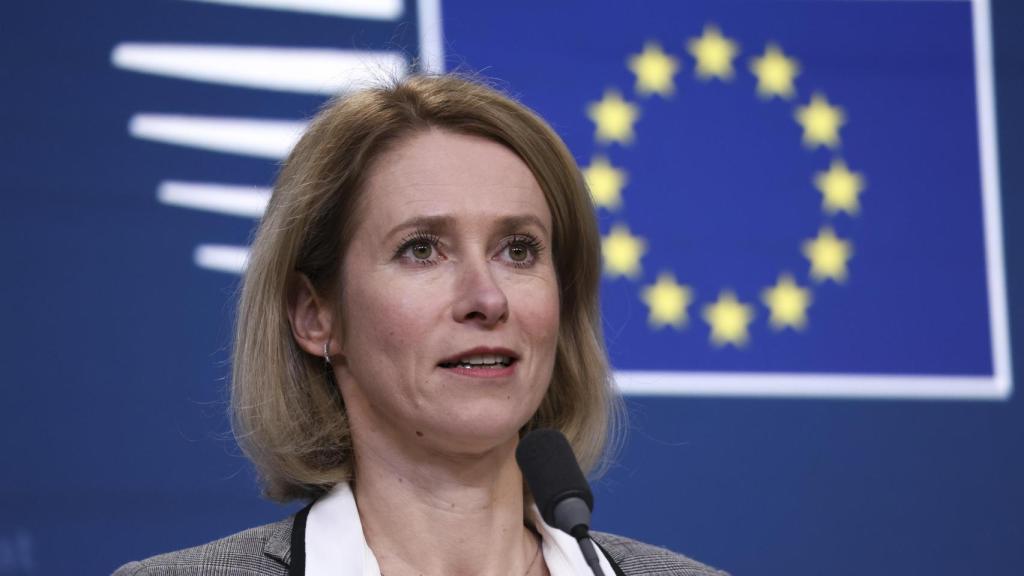“Extremism, Russia and Iran must have no place in Syria’s future“says the new High Representative for Foreign Affairs and Security Policy, the Estonian liberal Kaja Kallas. In the first meeting chaired by her, the foreign ministers of the 27 have set the “red lines” to normalize relations with the new Islamist authorities in Syria after the fall of the Syrian regime. Bashar Al Assadled by the HTS group, which to this day continues to appear on the EU blacklist of terrorist organizations.
Among the “basic principles” that the new Syrian regime must abide by if it wants to be recognized by the EU are respect for the territorial integrity and sovereignty of Syria or the formation of inclusive government that takes into account all minorities, as well as women’s rights“, according to Kallas at the beginning of the meeting.
To begin with, the new head of EU diplomacy has given instructions to the head of european delegation in Syria, Michael Ohnmacht, who was working from Beirut, to return to Damascus and establish the first contacts at a technical level with the new authorities.
“Everyone wants to avoid the mistakes made in Afghanistan and Libyawhere a vacuum was left and now we see the problems that those countries have,” says Kallas. “We have to be present (in Syria), because if we are going to help with reconstruction, we must also be at the table with regional actors to discuss the conditions,” he defended.
In any case, the High Representative considers that it is still too early to discuss whether HTS should be removed from the terrorist list or whether the economic sanctions imposed on Syria since the outbreak of the civil war should be lifted. “We do not want extremism or radicalization. “Right now, they’re saying the right things, but not everyone is convinced they’re going to do the right thing.”
“In the coming weeks and months, we must see positive action: not only words but also deeds,” Kallas claimed. If the new Syrian Government takes “positive steps” in this regard, the EU would be willing to review its sanctions policy.
Regarding the role of Russia and its military base in Syria, the head of European diplomacy reported that many ministers “have defended that It should be a condition for the new authorities to free themselves from Russian influence“. “Because on that base they also carry out their activities with respect to Africa and the southern neighbors and that is also a cause of concern for European security,” he noted.

The new head of European diplomacy, Kaja Kallas, during this Monday’s press conference in Brussels
For his part, the Foreign Minister, Jose Manuel Albareshas said that the chargé d’affaires will return to the Spanish embassy in Damascus this week and that he will also appoint a special envoy to reinforce this diplomatic representation.
“The idea is that Spain also joins the European countries that are having contact with the new authorities. They are very preliminary contacts to transfer clear red lines: the need for the future of Syria to be a peaceful future, and that what is a military movement has to evolve into a political movement, which has to be absolutely and necessarily inclusive, with scrupulous respect for ethnic and religious minorities “Albares explained.
The Foreign Minister has also claimed that there are no areas of the country in the hands of armed groups and also sees as a priority “preventing Syria from external military interference, which only adds instability and insecurity.”
The other cause of concern among Europeans after the fall of the Assad regime is the fate of Syrian refugees in Europe. Around 15 Member States – among which Spain is not included – have suspended the processing of asylum requests, while some like Austria are already working on a repatriation plan, with aid of up to 1,000 euros to Syrians who return voluntarily.
Albares has said that it is “fair and good” that the refugees can return to Syria because they had to leave against their will and that would also reduce the pressure on countries such as Turkey, Lebanon or Jordan, which host many of them. However, the Foreign Minister has insisted that the return should take place only when there are security guarantees and always respecting the dignity and human rights of Syrians.













Add Comment